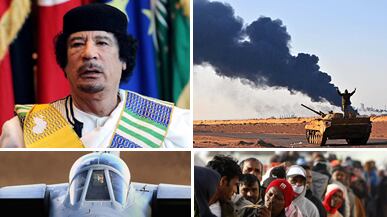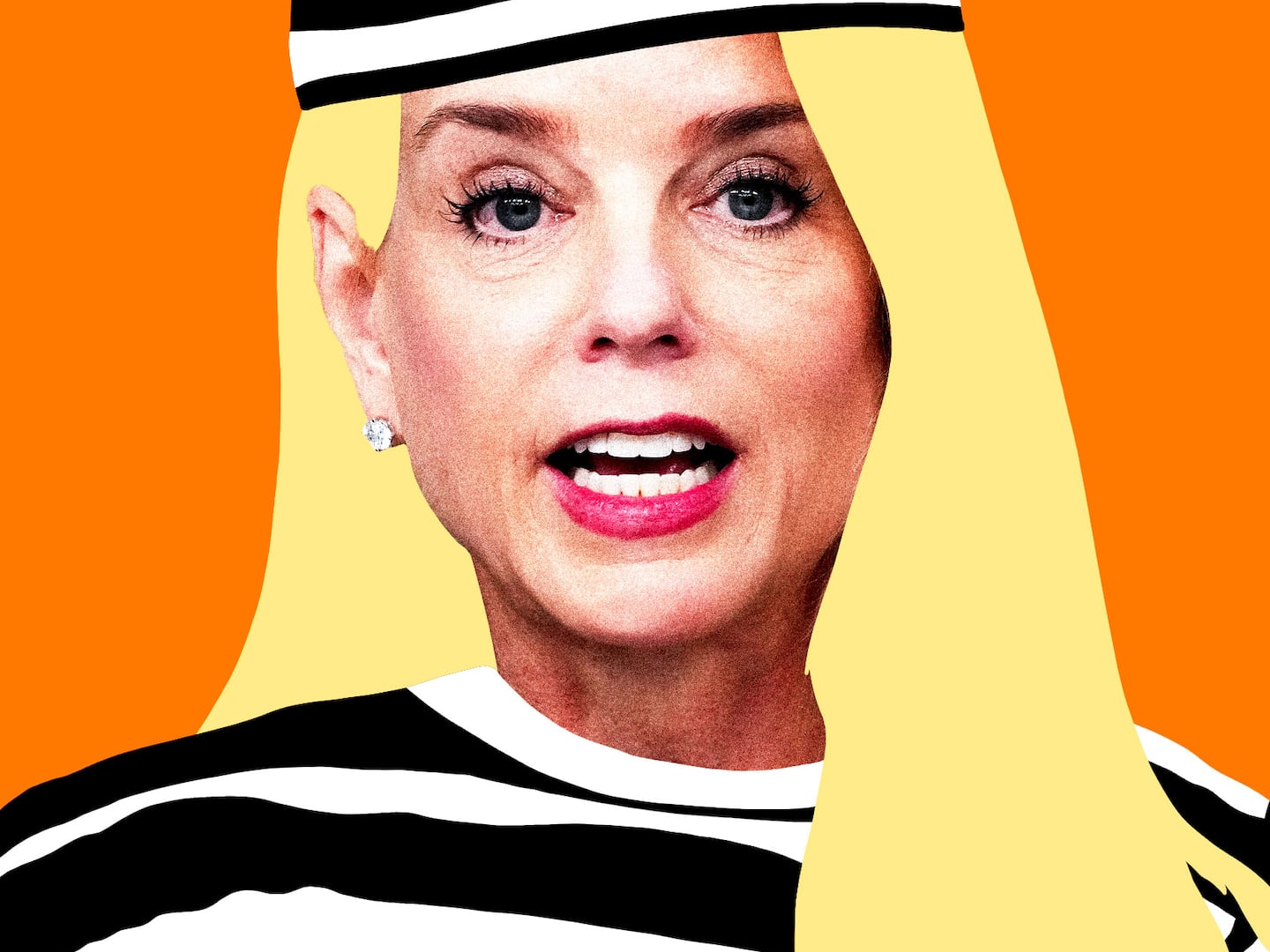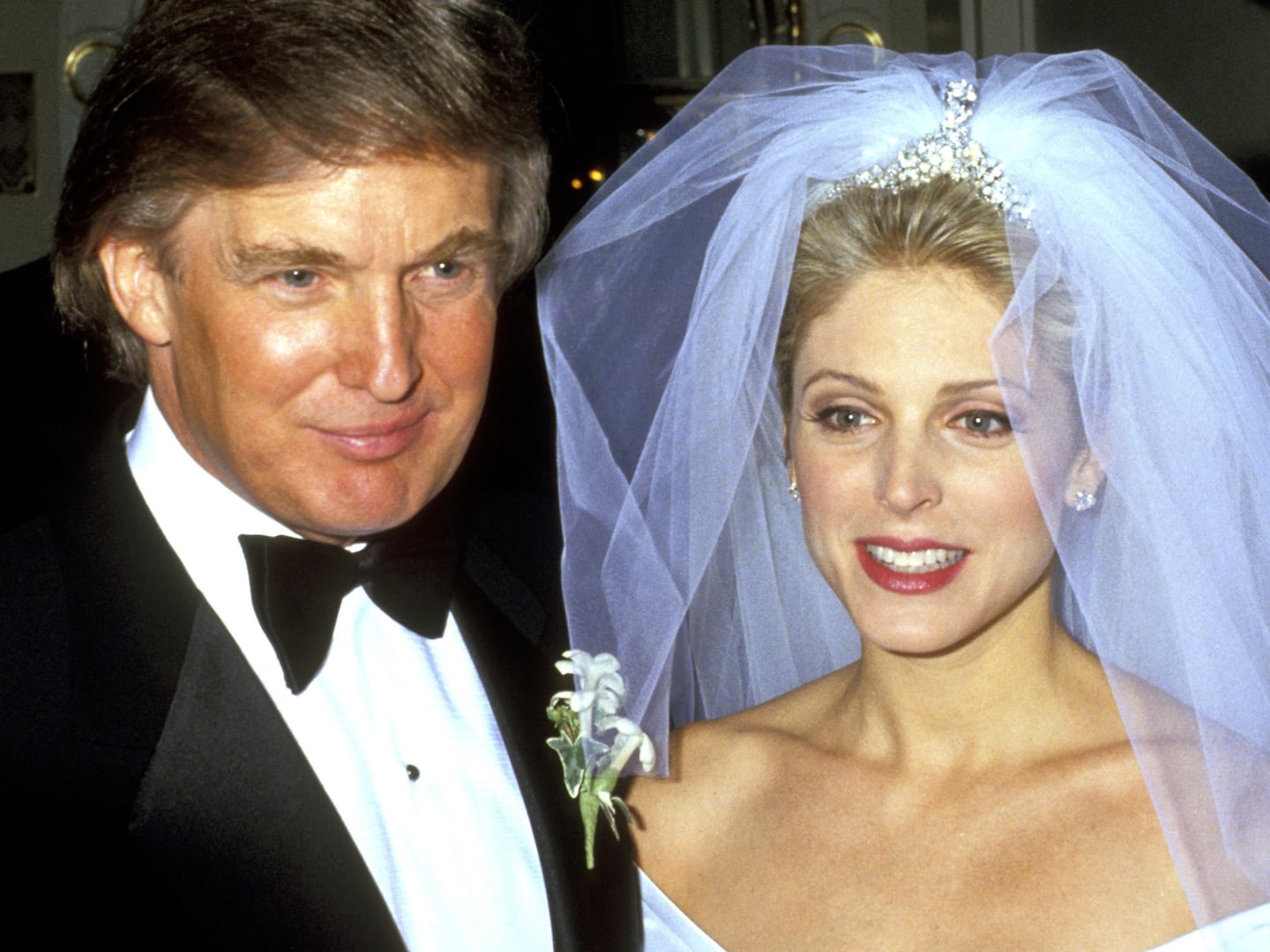The Economist gives an overview of the military intervention so far, Stewart Patrick writes on what the decision means for humanitarian foreign policy, Elizabeth Ferris points out the impending refugee crisis, and Mohammed ElBaradei and Yoweri Museveni give their impressions of Moammar Gaddafi.

1. Into the Unknown, The Economist
The Economist has a rundown of the Libya intervention so far and all the disagreements that threaten to stymie it. There's disagreement over whether NATO or a Franco-British command will lead the coalition, disagreement within NATO over what the objectives are, and disagreement among the rebels over whether they ought to push for Gaddafi's ouster or accept a temporary stalemate and partition. Many questions remain open, including whether the rebels have access to oil reserves, whether Col. Gaddafi has huge amounts of gold stashed away in Tripoli, how determined the army is to support Gaddafi, and how determined the rebels are to take him down. But the place to watch seems to Misurata, where Gaddafi's forces are currently entrenched. If airstrikes and rebel assaults can't dislodge loyalists there, it would show the limits of the coalition and the rebel forces, and effectively draw the line of partition—unless Gaddafi's government collapses from within.
2. A New Lease on Life for Humanitarianism, by Stewart Patrick, Foreign Affairs
Stewart Patrick lauds the decision to intervene in Libya for its revival of humanitarian foreign policy, but he says the allies are now obliged to see their intervention through. He writes that the U.N. resolution resuscitated a moribund policy called the “responsibility to protect,” a norm endorsed in the 2005 World Summit that “makes a state’s presumed right of nonintervention contingent on its ability and willingness to protect its citizens,” but which repeatedly failed to stop mass atrocities like those in Darfur and the Democratic Republic of Congo. “In invoking 'the Libyan authorities’ responsibility to protect its population' in U.N. Security Council Resolution 1973, which prompted Operation Odyssey Dawn” writes Patrick, “the Security Council has seemingly given RtoP a new lease on life.” But how long that lease is good for depends on Odyssey Dawn's success, and to succeed, you need clear goals. On this count, “the United States and its partners’ dithering over Operation Odyssey Dawn’s aims is disturbing.” Patrick thinks the coalition ought to stop dithering and decide that “The “responsibility to protect” implies a responsibility to rebuild once the shooting stops.” Despite the U.N. resolution's explicit rejection of an occupation of Libya, Patrick says stabilization will require a longterm multinational peacekeeping force.
With Odyssey Dawn, Bruce Ackerman argues, Obama has taken the precedent of unilateral executive action even farther than George W. Bush.
3. Libya: The Humanitarian Emergency We See and the One We Don't, by Elizabeth Ferris, The Brookings Institution
As everyone focuses on the armed struggle between Gaddafi's forces and the rebels, a new humanitarian crisis is developing, warns Elizabeth Ferris. Around 350,000 people have fled Libya in the last month, most of them Egyptian and Tunisian migrant workers trying to get home. But other groups are trying to escape as well, including large numbers of African migrants who report being attacked by rebels who mistake them for Gaddafi's mercenaries. A similar humanitarian crisis is developing inside the country, where reports say tens of thousands of Libyans have left their homes in search of safety. How has the international community responded to this less visible crisis? Aid organizations have done what they can to help refugees, positioning supplies in neighboring countries and helping transport migrant workers back home, but they haven't yet figured out how to operate safely within Libya's borders. Meanwhile, Europe regards the impending influx of refugees as a security threat. Italy's foreign minister warned about “a wave of 200,000 to 300,000 immigrants,” and France, in Ferris' words, has “called on the Italian government to act responsibly—and prevent the migrants from moving out of Italy into, say, France.”
4. Libya's Ragtag Rebels: Why They Fight, by Bobby Ghosh, Time
Time's Bobby Ghosh sizes up the rebels and finds them to be a ragtag band of amateur and poorly armed soldiers following a handful of different leaders—or none at all. Civilians use megaphones to rally people at the front, where people come to watch the air raids and talk about suicide missions, though they have no explosives. “The next attack will take place when the driver of one of the vehicles gets a rush of blood to his head and roars off in the direction of Ajdabiyah,” writes Ghosh. There are a few professional fighters among them, but they seem unable to rally and direct the partisans, who distrust them for once fighting for Gaddafi and worry they may change sides once more.
5. Qaddafi Unplugged, by Mohamed ElBaradei, Vanity Fair
Mohamed ElBaradei, the former director of the U.N. International Atomic Energy Agency and leading figure in the Egyptian revolution, thinks back on his past meetings with Gaddafi, and the impression the ruler gave of being out of touch with international politics. In one meeting, Gaddafi asks ElBaradei whether he's a Nasser fan and, “Why does the Egyptian government hate you?” But it's when Gaddafi whips out a notebook and pencil to take notes on how NATO works that ElBaradei “realized that Qaddafi was less than fully informed on global security alliances and structures.” ElBaradei touches on some of Gaddafi's quirks, like his ban on barbershops and penchant for meeting world leaders in tents, but mostly he sticks to anecdotes that show the gulf between how the world sees Libya and how Gaddafi and his son Saif would like to be seen.
6. The Qaddafi I Know, by Yoweri Museveni, Foreign Policy
Yoweri Museveni, the president of Uganda, lists the things he likes and dislikes about the Libyan ruler. Dislikes include Gaddafi's backing Idi Amin against Uganda, pushing for a United States of Africa instead of a less formal economic community, interfering with other country's politics, ignoring the crisis in Sudan, and being too close with terrorists. On the other hand, Museveni likes that Gaddafi is “independent minded” rather than a “puppet.” He also likes that Gaddafi raised the price of oil, built infrastructure within Libya, and is secular. Calling the rebels “insurrectionists” rather than demonstrators, Museveni goes on to list the reasons why the U.N. was wrong to get involved, arguing, among other things, that it's hypocritical not to impose a no-fly zone over Bahrain or Yemen (or China), that the airstrikes have prevented an African Union mission from arriving, and that the rebels were doing fine on their own. “I only had 27 rifles. To be puppets is not good,” writes Museveni.
7. Obama's Unconstitutional War, by Bruce Ackerman, Foreign Policy
With Odyssey Dawn, Bruce Ackerman argues, Obama has taken the precedent of unilateral executive action even farther than George W. Bush. Obama may have secured a U.N. Resolution, “But the U.N. Charter is not a substitute for the U.S. Constitution, which gives Congress, not the president, the power 'to declare war.'” After the Vietnam War, Congress passed the War Powers Resolution, which allows the president to act without congressional approval for 60 days in response to a "national emergency created by attack upon the United States, its territories or possessions, or its armed forces." But no U.S. forces were attacked by Gaddafi. Because the Libya campaign is being run with existing funds, Obama goes even further than the precedent set by Clinton in 1999 when he bombed Kosovo on the argument that Congress' approval of funding was tacit approval of the war. Obama could argue, as Truman did with Korea, that the president has the right to wage war without congressional approval, but Ackerman finds this argument dubious, and thinks Congress should deny funding after three months and launch an investigation into presidential power.
Josh Dzieza is an editorial assistant at The Daily Beast.






